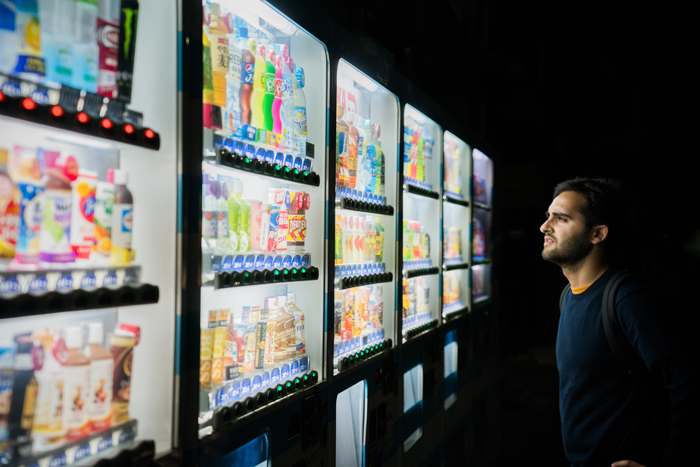“Our decisions, not the conditions of our lives, shape our destiny.” – Tony Robbins
Never has this been more relevant than today.
During the industrial era, we used our hands. In the knowledge era, we use our minds.
We take decisions which impact our actions which in turn, dictate how our professional and personal lives pan out. Thus our careers, purpose and sense of happiness are directly proportional to the quality of our decisions.
Many people believe that they don’t take decisions. But each time you make a choice, you take a decision.
Getting out of bed or hitting the snooze button, choosing what to wear and eat, designing strategies to work on important tasks, deciding between the gym and Netflix, selecting the best filter for our Instagram pics… it’s remarkable how many decisions we make
We take a huge number of decisions – some sources estimate that we make 35,000 decisions each day! But all of them are not at the same level.
Not All Decisions Are Equal
In his 2015 letter to Amazon’s shareholders, Jeff Bezos explained that decisions are primarily of two categories.
Type-1, or mission-critical, high-impact choices that influence the larger strategy. At an individual level, these could include choosing your next project or job, investing in new skills to stay relevant, and bringing up your child.
Type-2, or the lower stakes choices that can be easily reversed if needed. For individuals, these include deciding what to wear, reading through trails of FYI emails, and choosing between a pizza or pasta for lunch.
Here’s a critical point we should pay close attention to.
Like we used our physical muscles on machines during the industrial era, we use a mental muscle – willpower – to take decisions today. Like any muscle, willpower gets tired each time it gets used. Consequently, our mental bandwidth gets exhausted and we suffer from decision fatigue.
Decision fatigue affects us at various levels. At a personal level, this includes buyers’ remorse, abandoning a diet, and procrastinating. But it also affects others people who have to bear the brunt of our fatigue, or crimes of passion.
Sometimes, decision fatigue can have devastating consequences, like a crisis that could’ve been avoided or a poor decision that wipes out someone’s entire savings.
The key is to minimize this so that we can take better decisions and improve the quality of our lives.
Here are three actions we can take to do the same.
1. Most Important Thing First
We use up most of our willpower on Type-2 decisions because they seem important in the moment and give us the illusion of being more productive. In the process, we suffer when it comes to taking Type-1 decisions.
But successful people do the opposite. They prioritize critical, high-impact decisions and work on the most important tasks when their minds are fresh.
If you’re struggle to figure out what’s important, here’s a simple hack: List down the items on your to-do and identify the one that makes you most uncomfortable. That’s your most important task.
“What you’re afraid of is a clear indicator of the next thing you need to do.” – Grant Cardone
2. Automate Low-Level Decisions
To preserve our willpower and mental bandwidth for decisions that truly matter, we must automate decisions of low importance. A quick way to achieve this is to set processes so that we spend less energy on them.
Minimizing choices on regular activities is an example of automating low-level decisions. For instance, Mark Zuckerberg and Barrack Obama wear the same outfit every day. As a result, they can conserve their energy for Type-1 decisions.
You can apply this concept to daily life. For instance, you can decide what you’ll eat for breakfast on each day of the week on Sunday. You can decide what you want to wear to work on each day of the week on Sunday. You can create a checklist for the items you need to during business trips and use it when you pack.
This way, you don’t reinvent the wheel and can save energy for important decisions during the day.
3. Manage Your Physical Health
It is health that is real wealth and not pieces of gold and silver. – Mahatma Gandhi
According to research, people who routinely exercise start eating better, become more productive at work, show more patience with colleagues and families, and feel less stressed.
In other words, people who take care of their health take better decisions.
Physical exercise of any form – walking, running, swimming, hitting the gym – daily can make you enjoy the benefits mentioned above. You also avoid taking poor decisions when you feel hangry (hungry + angry).
Summing Up
Life is a culmination of our decisions. Who we are today is a result of the decisions we took so far. The decisions we take from now on will decide where we go from here.
Our abilities to take decisions are not carved in stone. Even the most successful people cannot take good decisions all the time. But we can tweak our lifestyle to make progress at what truly matters by improving the quality of our decisions.

2 Responses
Thank you,
How to take initiate to concentrate on type 1 decisions.?
That’s a good question, Praveenkumar. For us, the answer lies in checking what the expected outcome of the decision is. So if the possible returns are high, we’ll focus more on that decision and do what it takes to put away the lower ones. For instance, we’ll put away our phones, turn off our emails, and so on in order to focus deeply on the important decision.
Hope this helped.